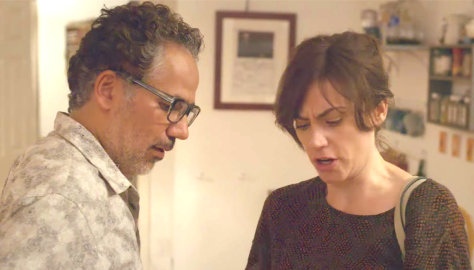



This morning a Facebook post from June 4, 2011 popped up among my memories of that day and prompted this post.
Have you ever wondered why good things happen to bad people, especially when the cheating, no-account, lazy, shiftless liars appear to live charmed lives? I’m overstating the situation, but honestly, I do see good people suffer in especially painful ways, and I have to ask myself why.
A friend recommended You Are Not So Smart by David McRaney. “a compendium of information about self-delusion and the wonderful ways we all succumb to it.“ I’m enjoying the book and its reminders of the dozens of ways we delude ourselves in order to make sense of the world. Among others, we use the confirmation bias, self-handicapping, groupthink, and the self-serving bias (love this one). Rereading about these fallacies in thinking was like taking a refresher course.
But then I came to the just-world fallacy, the tendency to see the world as just and fair. It stopped me in my tracks.
People have a misconception, McRaney writes, that people who are losing at the game of life must have done something to deserve it. Maybe they’re lazy bums. Or perhaps they made poor choices or are addicted to drugs, cheated on their income tax, or dropped out of school. The truth, like life, is more complicated than that.
Since we like to view the world as just and fair, we perceive the people with the trophies, the winners, as having worked hard. They buckled down in school, dressed for success at work, paid their tithing at church, helped little old ladies cross the street, and set goals with the best of them. While this is sometimes true, McRaney reminds his readers that it’s just as likely that the beneficiaries of good fortune did little to deserve it.
Sometimes good people who follow all the rules can’t seem to get a break no matter how hard they try. Sometimes bad things happen to good people.
Several years ago, I had the opportunity to teach a young woman whose goal was to become a pediatric nurse. She had served a stint in the Air Force before beginning the nursing program at Central Carolina. That summer Tricia was in one of my Human Growth and Development sections, and she made an immediate and lasting impression. Bright and spirited, she enjoyed sparring with her classmates over issues of child development. I sensed that a compassionate heart beat beneath that tough exterior.
I was right. We became Facebook friends after her graduation, and I learned of her desire to serve a medical mission in Haiti. She served several such missions and developed a love for the Haitian people.
On a somewhat regular basis, Tricia posted about her work in the medical field and her love for God. She’d often post a scripture and link it to something that had happened to her at work or within her family. She and her husband had a baby, and all was well.
About a year ago, I realized I hadn’t seen any recent posts on Facebook from her. I figured she’d probably just moved on. Or maybe she’d deleted her account. Then again, hmmm, perhaps she’d unfriended me. At some point, I put her name in the search bar.
Her cover photo was one of many taken at her Memorial Service in April, 2016.
How could it be that someone with such promise, someone on the cusp of her adult life as a wife, mother, and nurse, die? There was no information about cause of death.
Months later, I was cruising along I-95 when someone in the front seat asked, “Did you ever teach _______ _______?”
“Yes. But she died. Not sure why, but I’d be willing to bet her husband did it.”
Silence from the front seat. And then, “Yeah, that’s what happened. It was in the Sumter papers. Air Force, right?”
“Her husband was still in the Air Force, but I think he was stationed somewhere else. Virginia, maybe.”
My informant shared the particulars of Tricia’s murder, and I confirmed them for myself that same evening. Her death was untimely, gruesome. She left a bereft family behind, including a precious child. And this young woman was a winner who had a heart and mind and spirit superior to many. Her death is yet another reminder of the just-world fallacy.
Why do bad things happen to good people?
Share this:




